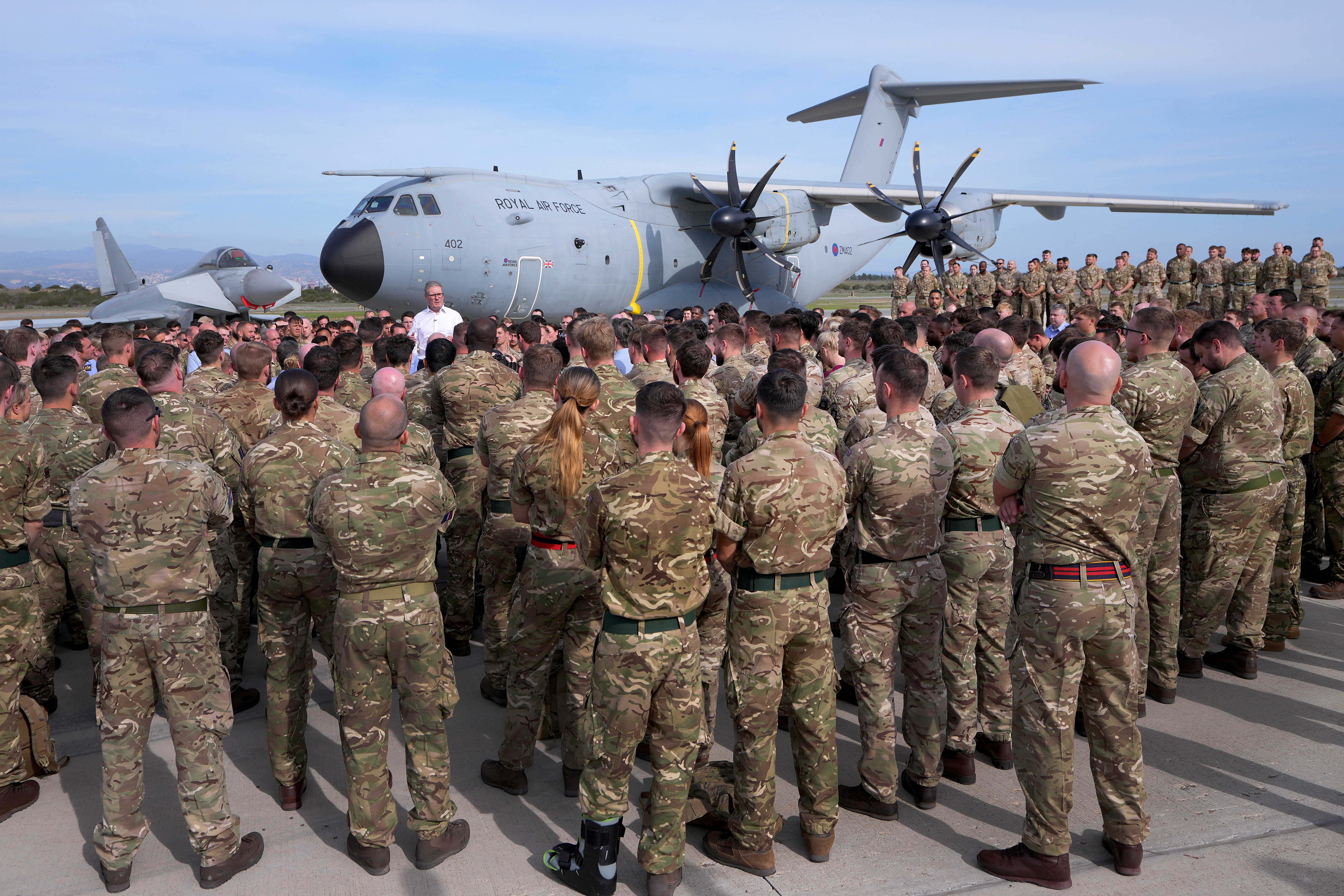Keir Starmer became only the second British prime minister to visit Cyprus since independence, when he arrived at the presidential palace on Tuesday for a meeting with President Nikos Christodoulides. The only other prime minister to have paid an official visit was Edward Heath in 1971. John Major was in Cyprus in 1993, but that was to attend the Commonwealth Heads of Government Meeting on the island.
It is astonishing that in the 63 years, since independence, only two British prime ministers have officially visited the island, and there was half a century between these visits. The rarity of visits, which is difficult to explain considering the close ties between the countries, justified President Christodoulides describing Starmer’s arrival as a “historic visit.” Perhaps Cyprus’ colonial status of the past and the Eoka struggle for enosis had affected relations between governments, although these had not affected business ties, trade relations, tourism and study at UK universities.
There has been an anti-British sentiment among the population, cultivated by politicians and newspapers who viewed UK government policy as pro-Turkish in the Cyprus problem while every so often there have been demands for the abolition of the sovereign bases. Relations between people, however, have always been excellent. There are tens of thousands of Britons who have made the island their home, while the Cyprus economy has benefited from UK visitors who make up more than 50 per cent of annual tourist arrivals.
The prime minister’s visit underlined the improvement of relations at government level as well. Christodoulides, greeting Starmer, said the two countries had “turned a new page in their relationship.” The visit, he said, was “clear proof of our strong will to work together to enhance our bilateral relationships in defence, security, investments, trade, education, technology and on all levels.”
Britain has been cooperating with Cyprus and offering assistance to government efforts to clamp down on money laundering. Starmer’s office said the UK government supports Cyprus in establishing a Sanctions Implementation Unit to crack down on illicit Russian finance flowing through Europe. The Christodoulides government also joined the UK Shadow Fleet initiative in July “to further support Ukraine and intercept ships undertaking illegal operations aimed at circumventing sanctions,” the PM’s office said. The partnership “further strengthens the intelligence and security relationship between the two countries.”
This improvement of relations is part of Christodoulides’ turn to the West, which has also seen the forging of the strategic partnership with the US. The proximity of Cyprus to the Middle East war zone and the presence of the British bases have proved of great importance to the US and UK who have been using all facilities provided by the Republic. In fact, senior government sources acknowledge that the presence of the bases provided the Republic with security at a time of great regional instability. According to official reports, the issue of the bases did not come up in Tuesday’s meeting.
Interestingly, Christodoulides also sought the involvement of Britain in efforts to resume the Cyprus talks. As a guarantor power and permanent member of the UN Security Council, Britain has a special role to play in these efforts, Christodoulides said. That a Cyprus government is even seeking Britain’s help on the Cyprus problem indicates how much the once-fraught relations have improved.






Click here to change your cookie preferences